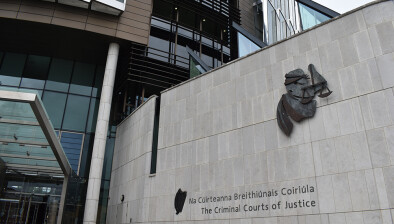Court of Appeal: O’Malley particularisation requirements apply equally to Revenue summary proceedings as to lender debt recovery proceedings

The Court of Appeal has determined that Revenue failed to adequately particularise its claim in accordance with O. 4, r. 4 RSC as discussed in Bank of Ireland Mortgage Bank v O’Malley [2019] IESC 84, but that fresh evidence admitted on appeal explained the discrepancies in the sums notified to the appellant and those claimed in the summary proceedings.

About this case:
- Citation:[2024] IECA 288
- Judgment:
- Court:Court of Appeal
- Judge:Mr Justice Michael MacGrath
Delivering judgment for the Court of Appeal, Mr Justice Michael MacGrath stated: “There is no separate rule of court imposing less demanding particularisation requirements in summary proceedings brought by the Collector General.”
Background
On 12 February 2024, the High Court granted summary judgment in favour of the respondent, the Collector General, in two sets of related proceedings concerning the tax liabilities of the appellant for 2015 and 2016.
The High Court gave judgment for €225,401.42 plus costs in the PAYE/PRSI proceedings and for €150,790.27 plus costs in the income tax proceedings.
In the PAYE/PRSI proceedings, the tax due for 2015 exclusive of interest was stated in the Notice of Estimation of Tax Due to be €109,333, but €98,307.93 exclusive of interest was claimed on the summons. In the income tax proceedings, the tax due for 2015 was stated in the Notice to be €52,404.47, but the amount claimed on the summons was €52,393.47.
Mr Justice Anthony Barr giving judgment for the High Court observed that “One has to live with these things with a degree of reality, rather than coming at it and it’s trying to avoid a liability to pay tax or to suffer summary judgment on the basis of a tiny discrepancy which is actually in favour of the taxpayer, of €11.”
The High Court found that the appellant had not been proactive in making returns during the designated period or appealing her assessments when furnished to her, and so the discrepancies did not provide a defence to the claim.
The appellant appealed in each set of proceedings on the basis that there were discrepancies between the amounts contained in the Notices previously issued to her and the amounts claimed on the summary summons in each case.
Submissions
The appellant submitted that the claims were not properly pleaded in accordance with O.4, r.4 of the Rules of the Superior Courts 1986 (RSC) as discussed in Bank of Ireland Mortgage Bank v O’Malley [2019] IESC 84, and that the High Court erred in rejecting the appellant’s submission that the respondent was not entitled to judgment where no explanations had been given for the discrepancies.
The appellant submitted that the requirement to calculate the amounts said to be due with sufficient particularity is fundamental in proceedings brought by Revenue where the proofs required to be exhibited in such proceedings are minimal, as compared to summary proceedings brought by financial institutions.
Revenue accepted that unexplained discrepancies existed and sought to adduce additional evidence on appeal to explain them pursuant to O.86A, r.4 RSC. Revenue also submitted that the unchallenged assessments to tax were conclusive and final pursuant to s. 959AF(3) of the Taxes Consolidation Act 1997 (as amended), that O’Malley did not apply to proceedings involving the Collector General and that O’Malley could be distinguished in any event where principal and interest had been clearly set out and where the discrepancies were in favour of the appellant.
The Court of Appeal
Mr Justice MacGrath observed: “There is no separate rule of court imposing less demanding particularisation requirements in summary proceedings brought by the Collector General.”
Finding that in circumstances where the discrepancies were admitted and were stated to be capable of straightforward explanation, and where the appellant agreed that there were no other grounds upon which the claim could be resisted, the Court of Appeal was satisfied that it could consider the applications to admit fresh evidence on appeal.
In the PAYE/PRSI proceedings, the respondent’s affidavit described inter alia payments received from the appellant in the amount of €8,740 in 2017 and €2,285.07 in 2018, which reduced her outstanding liabilities to €98,307.93 for 2015.
In the income tax proceedings, the respondent’s affidavit explained that a VAT claim in the sum of €11 was made by the appellant for September/October 2022 and that this was offset against her liabilities.
As to particularisation, Mr Justice MacGrath noted that prima facie, the claims had not been sufficiently particularised in the pleadings or affidavits grounding the application for summary judgment, but that “The reality, however, is that such discrepancies are capable of explanation.”
Applying the Supreme Court’s judgment in Murphy v. The Minister for Defence Ireland and the Attorney General [1991] 2 IR 161 in respect of the admission of fresh evidence on appeal, the Court of Appeal summarised that three criteria needed to be satisfied by the respondent: that the evidence which was available at the time of the trial could not have been discovered with reasonable diligence, that the evidence would have had an important influence on the outcome of the trial and that the evidence is apparently credible.
Finding the latter two of the criteria to be satisfied, the court considered Revenue’s concession that the evidence could have been obtained for use at the hearing before the trial judge but as the appellant had not complained of the discrepancy on affidavit prior to the hearing, it did not have an opportunity to respond.
Noting the importance of the finality of litigation, Mr Justice MacGrath observed: “The discretion of the court is not an inflexible one. Of relevance in considering how to exercise it is the nature and type of the proceedings.” The judge considered the approach of the court in Ennis v. Allied Irish Bank Plc [2021] IESC 12 and Promontoria (Arrow) v Mallon & Anor [2021] IECA 130, which permits greater latitude to be given to admitting new evidence in summary proceedings.
Mr Justice MacGrath observed: “In accordance with the procedures envisaged in O’Malley, if the judgments are set aside by this court, it is highly likely, if not inevitable, that the proceedings will be remitted to the High Court, where it is almost certain that any necessary application to amend will be granted. Considering submissions and arguments advanced and concessions made before this court, it is also inevitable that judgment will be granted in the sums claimed in both cases.”
Conclusion
Noting that no prejudice of an evidential nature was alleged which could not be addressed by an order for costs, the court was satisfied to grant leave to admit Revenue’s fresh evidence and having regard to the absence of an available defence, dismissed the appeal.
Howley v. Onyenemezu [2024] IECA 288









